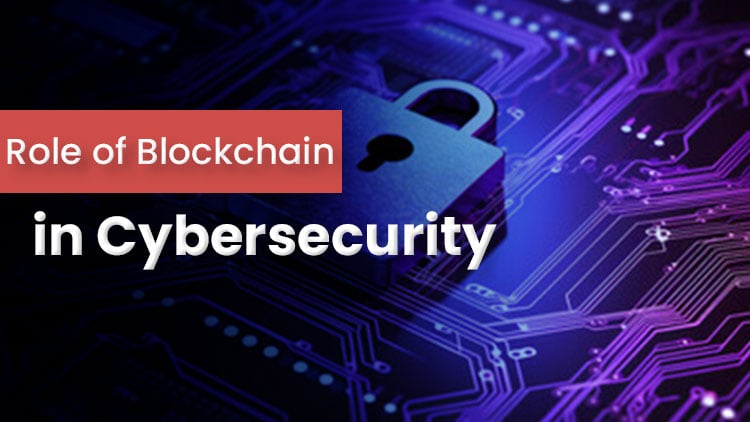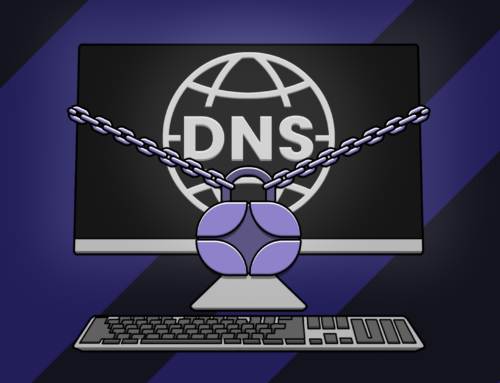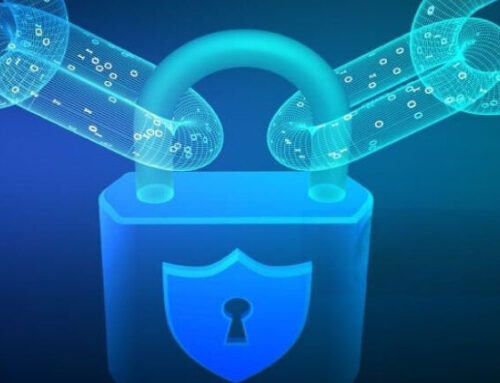
The Role of Blockchain in Cyber Defense.
The Role of Blockchain in Cybersecurity: Enhancing Data Security Cyber Defense
In the modern digital era, the role of blockchain in cybersecurity is garnering significant attention as organizations strive to protect their sensitive data. As cyber threats become increasingly sophisticated, integrating blockchain technologies into cybersecurity solutions is emerging as a powerful way to enhance data security. By leveraging the inherent strengths of blockchain networks, companies can ensure data integrity and counteract the risks associated with traditional security measures. This article delves into how blockchain technology makes a difference in the realm of cybersecurity, exploring its use cases and the potential for widespread adoption to fortify defenses against threats.
Understanding Cybersecurity
What is Cybersecurity?
Cybersecurity refers to the practice of protecting systems, networks, and programs from digital attacks. These cyber threats aim to access, change, or destroy sensitive information, extort money, or disrupt normal business operations. In this context, cybersecurity encompasses a range of technologies, processes, and practices designed to secure data and maintain the integrity of information systems. By employing a robust cybersecurity framework, organizations can protect their assets against potential vulnerabilities and mitigate risks effectively. As the digital landscape evolves, understanding and implementing cybersecurity measures become paramount for sustaining operational reliability and ensuring the security and privacy of data.
Current Cybersecurity Challenges
Organizations today face a multitude of cybersecurity challenges that threaten the integrity of their data and systems. The ever-evolving nature of cyber threats, including malware, ransomware, and phishing attacks, requires constant vigilance and adaptation. As businesses navigate these challenges, some critical issues and promising solutions emerge in the realm of blockchain for cybersecurity.
- Single point of failure within traditional security frameworks: This vulnerability can lead to catastrophic breaches.
- Integrating blockchain in cybersecurity: By decentralizing data storage and employing blockchain security measures, companies can mitigate risks and improve privacy and security.
Additionally, the rapid digital transformation and increasing connectivity expose more endpoints to potential threats.
Importance of Data Security
Data security holds paramount importance in safeguarding an organization’s sensitive information from unauthorized access and cyber threats. Ensuring data security not only protects valuable assets but also builds trust with customers and stakeholders. In an era where digital transactions and data exchanges are integral to business operations, the adoption of blockchain technology in cybersecurity becomes crucial. Blockchain technology provides a decentralized and immutable ledger that enhances the security of data stored on the blockchain, thereby preventing unauthorized tampering. By adopting blockchain solutions, organizations can fortify their defenses, ensuring that sensitive data remains secure and reliable, thereby empowering businesses to thrive in a secure digital environment.
The Role of Blockchain in Cybersecurity
Overview of Blockchain Technologies
Blockchain technologies represent a transformative shift in how data is managed and secured in the digital age. Originating as the backbone of cryptocurrencies, blockchain has expanded its reach into various sectors, including cybersecurity. Its decentralized nature eliminates the single point of failure inherent in traditional security systems, offering a robust alternative to centralized data management. By distributing data across a network of nodes, blockchain ensures data integrity and enhances security measures. The inherent transparency and immutability of blockchain technologies make them a formidable tool in safeguarding sensitive data against tampering and unauthorized access. As organizations increasingly seek to mitigate cyber threats, the application of blockchain in cybersecurity is poised for widespread adoption, promising a secure and reliable future for data management.
How Blockchain Enhances Cybersecurity
Blockchain enhances cybersecurity by providing a decentralized and tamper-proof framework that significantly strengthens data security. This innovative technology minimizes the risk of cyber threats by recording transactions in a way that is transparent and immutable. Each transaction is verified and added to a chain of blocks, creating a comprehensive and secure ledger stored on the blockchain. This makes it exceedingly difficult for cybercriminals to alter or manipulate data, thus ensuring the reliability of cybersecurity solutions. By leveraging blockchain networks, organizations can fortify their defenses against potential vulnerabilities, reducing the likelihood of data breaches and enhancing the overall security and privacy of their digital assets. As the adoption of blockchain technology grows, its role in cybersecurity continues to expand, offering promising solutions to today’s complex security challenges.
Key Security Features of Blockchain
Blockchain technology provides several key security features that make it an invaluable asset in the realm of cybersecurity. Its decentralized architecture ensures that data is not stored in a single location, eliminating the risk of a single point of failure. Additionally, blockchain employs advanced cryptographic techniques to secure data, ensuring that only authorized parties can access sensitive information. The consensus mechanisms employed by blockchain networks further enhance data integrity by validating transactions before they are added to the chain. These features collectively bolster the security measures of any organization choosing to integrate blockchain platform into their cybersecurity strategy. By adopting blockchain solutions, businesses can significantly improve data security, ensuring that their operations remain resilient against evolving cyber threats while maintaining customer trust and confidence in their ability to safeguard data.
Use Cases of Blockchain in Cybersecurity
Blockchain Applications in Data Protection
Blockchain technologies are revolutionizing the way data protection is approached in cybersecurity. By employing a decentralized model, blockchain technology significantly enhances data security, ensuring sensitive data is protected against unauthorized access and tampering. In particular, the application of blockchain in data protection is vital for industries dealing with vast amounts of sensitive information, such as healthcare and finance. These sectors benefit from blockchain’s immutable ledger, where data, once recorded, cannot be altered without consensus from the entire network, thus ensuring data integrity. As cyber threats evolve, adopting blockchain solutions for data protection allows organizations to maintain robust security measures, providing peace of mind to stakeholders and reinforcing trust in digital transactions. Through the use of blockchain in cybersecurity, companies can safeguard their critical assets while paving the way for secure data exchanges leveraging distributed ledger technology.
Case Studies: Successful Blockchain Implementations
Several case studies illustrate the transformative impact of blockchain technology in enhancing cybersecurity across various sectors. For instance, financial institutions have successfully integrated blockchain systems to fortify their transaction processes, reducing the risk of fraud and enhancing the security of financial data. In the healthcare industry, blockchain has been employed to secure patient records, ensuring that sensitive data remains confidential and tamper-proof through the use of distributed ledger technology. These implementations highlight the role of blockchain in cybersecurity, as organizations utilize blockchain networks to eliminate single points of failure and enhance security protocols. As businesses continue to face cybersecurity challenges, these case studies serve as a testament to the efficacy of blockchain technology in safeguarding data and maintaining operational integrity. The adoption of blockchain cybersecurity solutions has not only improved data security but also bolstered customer trust and confidence in digital infrastructures.
Emerging Trends in Blockchain Cybersecurity
The future of blockchain in cybersecurity is marked by several emerging trends that promise to redefine how organizations approach data protection. One key trend is the application of blockchain technology. integration of blockchain technology with artificial intelligence (AI) to create more adaptive and resilient cybersecurity solutions. This combination leverages the strengths of both technologies, enhancing security measures and enabling real-time threat detection and response. Another trend is the widespread adoption of blockchain for identity verification, providing a secure and decentralized method of verifying user identities. As cyber threats continue to evolve, the nature of blockchain ensures that it remains a robust tool in the realm of cybersecurity, offering innovative solutions to complex security challenges. Organizations are increasingly exploring how blockchain can be used to not only enhance cybersecurity but also drive efficiency and trust in digital transactions, ensuring a secure and reliable future for their operations.
Integrating Blockchain Technologies
Challenges in Implementing Blockchain Solutions
Implementing blockchain solutions in cybersecurity presents several challenges that organizations must navigate to ensure successful integration. One primary hurdle is the complexity of integrating blockchain technology into existing IT infrastructures. Many organizations face difficulties in aligning blockchain networks with their current systems, which can lead to interoperability issues. Additionally, the adoption of blockchain technologies requires a significant investment in time and resources, as well as a shift in organizational culture towards embracing innovative cybersecurity practices. Moreover, the regulatory landscape surrounding blockchain technologies can be complex and uncertain, posing legal and compliance challenges for businesses. Recognizing these obstacles, Teamwin Global Technologica is committed to guiding enterprises through the integration process, assuring that their infrastructure remains secure and resilient against evolving cyber threats.
Steps to Integrate Blockchain into Existing Frameworks
Integrating blockchain into existing cybersecurity frameworks involves a strategic approach to ensure seamless adoption and maximize the potential of blockchain for enhancing security benefits. Here are the key steps involved in this process:
- Conduct a comprehensive assessment of the organization’s current cybersecurity measures to identify areas where the application of blockchain technology can enhance security. This involves understanding the specific use cases where blockchain technology can provide the most significant impact.
- Develop a clear implementation plan, outlining the technical requirements and necessary resources. Partnering with experienced blockchain service providers, like Teamwin Global Technologica, can facilitate this process by providing expert guidance and tailored solutions.
Finally, continuous monitoring and evaluation are crucial to ensure the blockchain integration remains effective, adapting to emerging cybersecurity challenges and improving data security over time, ultimately safeguarding sensitive data and ensuring data integrity.
Future of Blockchain in Cybersecurity Solutions
The future of blockchain in cybersecurity solutions is poised to redefine how organizations secure data and respond to increasingly sophisticated cyber threats. As technology advances, the role of blockchain in enhancing cybersecurity will expand, offering innovative solutions that transcend traditional security measures. The decentralized nature of blockchain technologies provides a robust framework for ensuring data integrity and security, paving the way for widespread adoption of blockchain for cybersecurity across industries. In the coming years, we anticipate a surge in the use of blockchain for secure data management, identity verification, and fraud prevention. Teamwin Global Technologica is at the forefront of exploring how the potential of blockchain can empower businesses, ensuring their operations are safeguarded against potential vulnerabilities. Embracing blockchain technology not only enhances cybersecurity but also reinforces trust and reliability, promising a secure digital future for enterprises worldwide.
5 Surprising Facts About the Role of Blockchain in Cyber Defense
- Blockchain’s decentralized nature helps eliminate single points of failure, making it harder for attackers to compromise entire systems.
- Blockchain can enhance data integrity by ensuring that once data is recorded, it cannot be altered without consensus, thus providing a reliable audit trail.
- Smart contracts on blockchain platforms can automate security protocols, reducing human error and speeding up response times to potential threats.
- Blockchain technology can facilitate secure sharing of threat intelligence among organizations, allowing for a collective defense against cyber threats.
- Some blockchain projects are specifically designed to protect against Distributed Denial of Service (DDoS) attacks, offering innovative solutions that traditional methods may not provide.
What is the role of blockchain in cybersecurity?
The role of blockchain in cybersecurity is significant as it enhances data integrity and security measures. By utilizing distributed ledger technology, blockchain provides a secure platform for storing sensitive data, protecting it from cyber threats. This decentralized approach reduces the risk of a single point of failure, making it a valuable solution for organizations aiming to bolster their cybersecurity frameworks.
How can organizations use blockchain technology for cybersecurity?
Organizations can use blockchain technology for cybersecurity by integrating blockchain solutions into their existing security infrastructure. This can include implementing blockchain-based cybersecurity solutions that enhance data security and protect against cyber threats. By adopting blockchain, businesses can ensure the integrity and confidentiality of their data through secure blockchain transactions.
What are some use cases for blockchain in cybersecurity?
Use cases for blockchain in cybersecurity include secure identity management, supply chain security, and secure data sharing. Blockchain can provide a transparent and tamper-proof ledger that enhances security features across various sectors. Organizations are exploring how blockchain technology can fortify their cybersecurity and improve data protection strategies.
What are the challenges of blockchain technology in cybersecurity?
While blockchain technology offers numerous benefits, there are challenges to its adoption in cybersecurity. These include scalability issues, regulatory concerns, and the need for standardization across different blockchain networks. Additionally, the integration of blockchain requires expertise and may involve significant changes to existing systems.
How does blockchain enhance data security?
Blockchain enhances data security by ensuring that data stored on the blockchain is immutable and verifiable. This means that once a transaction is recorded, it cannot be altered without the consensus of the network, thereby improving data integrity. The decentralized nature of blockchain eliminates vulnerabilities associated with centralized systems, providing robust protection against unauthorized access and cyber threats.
What security measures can be implemented using blockchain?
Security measures that can be implemented using blockchain include encryption, multi-signature authentication, and automated smart contracts. These features enhance security by ensuring that only authorized parties can access sensitive information and that transactions are carried out under predetermined conditions, minimizing the risk of fraud and data breaches.
How does the adoption of blockchain impact future cybersecurity?
The adoption of blockchain is poised to impact the future of cybersecurity significantly by introducing new paradigms for data security and integrity. As organizations increasingly leverage blockchain technology, they can expect to see enhanced protection mechanisms that are both more resilient to attacks and capable of adapting to evolving cyber threats.
What are the benefits of using blockchain for cybersecurity?
The benefits of using blockchain for cybersecurity include improved data integrity, enhanced security features, and reduced vulnerability to cyber attacks. By utilizing a decentralized ledger, organizations can establish trust and transparency in their transactions, making it a powerful tool for protecting sensitive data and ensuring compliance with cybersecurity regulations.
Can blockchain technology be integrated with artificial intelligence for enhanced cybersecurity?
Yes, blockchain technology can be integrated with artificial intelligence to create more robust cybersecurity solutions. This combination allows for real-time threat detection and response, leveraging the transparency of blockchain with the analytical power of AI. Together, they can enhance security measures and provide organizations with a comprehensive defense against emerging cyber threats.






